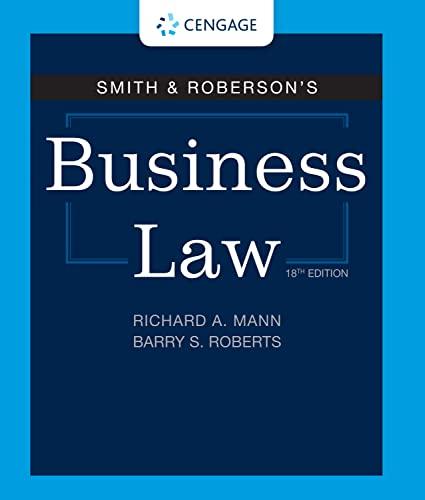Question
Respond to peer post: The Importance of Police Investigation Interviews and the Controversy Surrounding It Police investigation interviews are a critical component of the criminal
Respond to peer post:
The Importance of Police Investigation Interviews and the Controversy Surrounding It
Police investigation interviews are a critical component of the criminal justice system. They allow law enforcement to gather information about crimes victims, witnesses, and suspects committed. This information can be used to identify suspects, develop leads, and build cases for prosecution. Police investigation interviews can also help to ensure that innocent people are not wrongly accused of crimes. By interviewing witnesses and suspects, investigators can better understand what happened and who is responsible. This can help to prevent miscarriages of justice.
In addition to their practical benefits, police investigation interviews play an essential role in safeguarding the rights of both the accused and the victim. By law, suspects must be informed of their Miranda rights before being interrogated. These rights include the right to remain silent and the right to have an attorney present. Suspects must also voluntarily waive their Miranda rights for their statements to be admissible in court. Victims of crime also have certain rights during police investigations. For example, they have the right to be informed of the status of their case and to provide input on the investigation. Victims also have the right to be protected from retaliation by the suspect.
While police investigation interviews are essential to the criminal justice system, some controversial aspects exist. One concern is that coercive interrogation tactics can lead to false confessions. False confessions occur when an innocent person confesses to a crime they did not commit. This can happen when suspects undergo prolonged interrogation, threats, or physical abuse. Another concern is that police investigation interviews can be biased. For example, studies have shown that police officers are more likely to suspect and interrogate African Americans and Latinos than white suspects. This can lead to racial disparities in the criminal justice system.
In conclusion, police investigation interviews are essential to the criminal justice system. However, there are some controversial aspects of the interview process, such as the risk of false confessions and racial bias. Several steps can be taken to improve the police investigation interview process and reduce the risk of these problems.
Steps to improve the police investigation interview process:
Several things can be done to improve the police investigation interview process and reduce the risk of false confessions. One crucial step is to train police officers in non-coercive interrogation techniques. These techniques elicit accurate and reliable information from suspects without resorting to threats or violence. Another critical step is ensuring that all suspects are informed of their Miranda rights before interrogating. Suspects should also have the right to have an attorney present during interrogation. If a suspect waives their Miranda rights, the interrogation should be recorded to be reviewed later. Finally, it is essential to hold police officers accountable for misconduct during interrogations. If a police officer uses coercive tactics to obtain a confession, that confession should be inadmissible in court.
Additional thoughts:
In recent years, there has been a growing movement to reform the police investigation interview process. Several high-profile cases of false confessions and racial disparities in the criminal justice system have fueled this movement. One of the critical goals of the reform movement is to reduce the risk of false confessions. This can be done by training police officers in non-coercive interrogation techniques and recording all interrogations. Another goal of the reform movement is to address racial bias in the police investigation interview process. This can be done by providing police officers with training on implicit bias and developing policies and procedures that ensure all suspects are treated fairly. The reform of the police investigation interview process is complex and challenging. However, ensuring that the criminal justice system is fair and just for everyone is essential.
Step by Step Solution
There are 3 Steps involved in it
Step: 1

Get Instant Access to Expert-Tailored Solutions
See step-by-step solutions with expert insights and AI powered tools for academic success
Step: 2

Step: 3

Ace Your Homework with AI
Get the answers you need in no time with our AI-driven, step-by-step assistance
Get Started


